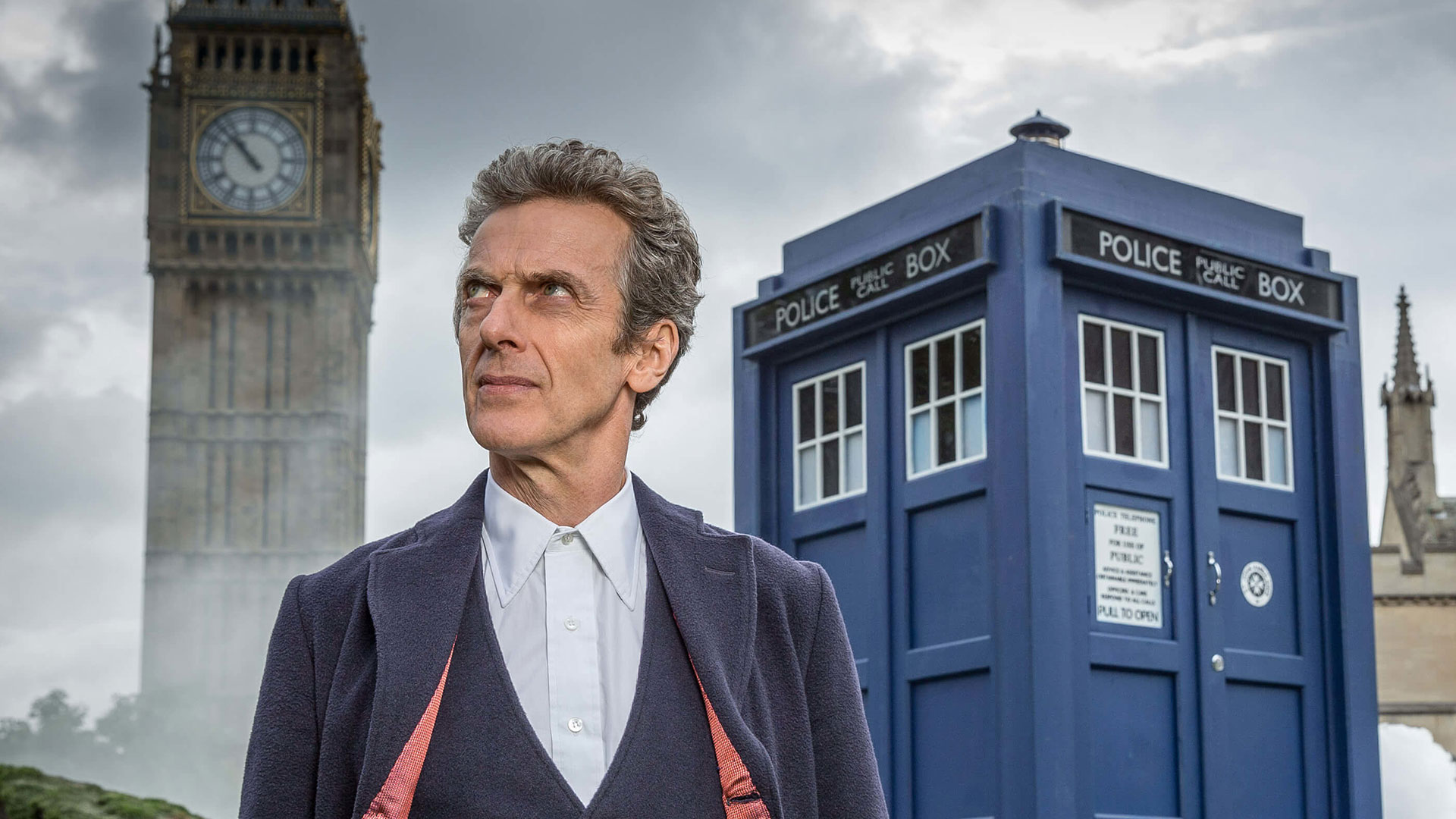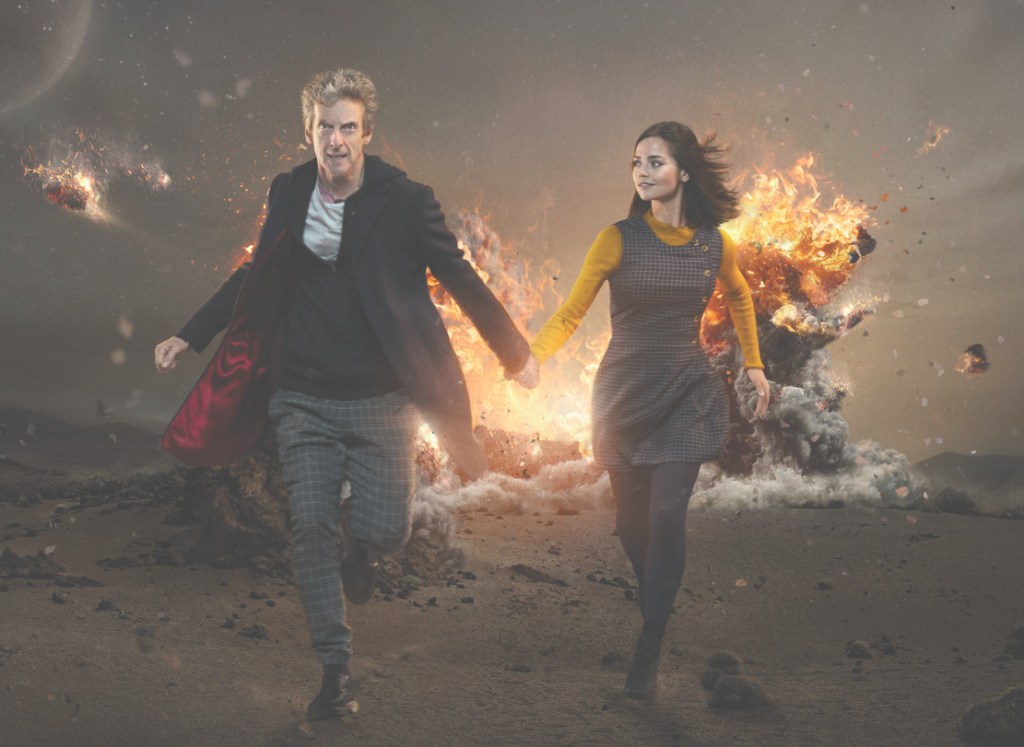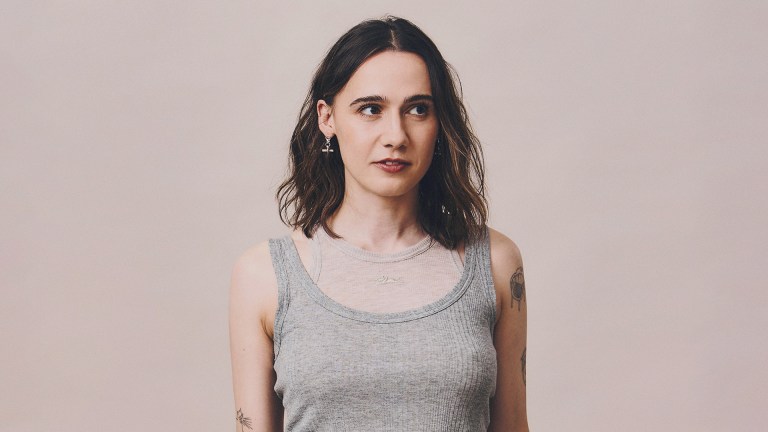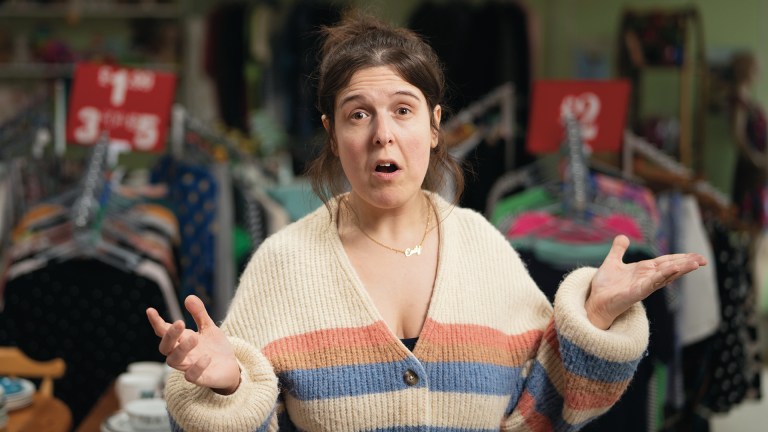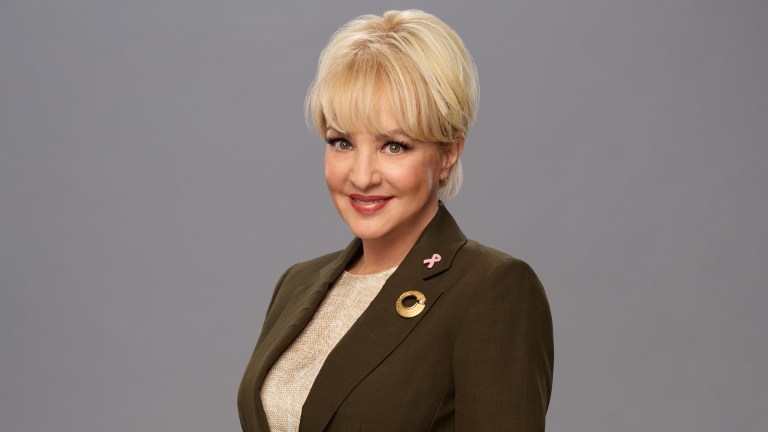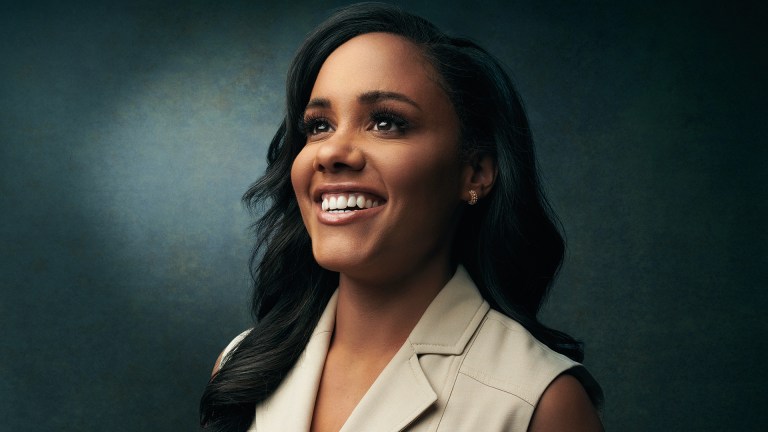“I feel a responsibility, yeah,” he says of the new fans. “We all do, Matt [Smith], David [Tennant], Chris [Eccleston], all the old Doctors do that. It comes with the territory. It is also nice. It is a privilege to walk around and please people just by showing up. People don’t smile so much at me as at Doctor Who. It is easy to surf this wave of affection.”
The new series is formed almost entirely of two-part adventures. A tour of the set with the show’s joyously indiscreet executive producer Brian Minchin brings forth hints, spoilers and revelations. Skip this paragraph if you are avoiding every detail. As we watch a Zygon attacking Osgood (Ingrid Oliver), the UNIT scientist and the Doctor’s biggest fan, last seen being murdered by Missy, Minchin casually mentions incorporating found footage into the show, a potential one-hander with Capaldi alone in the TARDIS, an underwater base, ghostly goings on and the return of an iconic foe.
Capaldi’s Doctor is evolving. His hair is bigger (“Some people think I am going for the full Jon Pertwee bouffant, who knows?” he quips). And his enthusiasm for a job with such an exhausting schedule is undimmed.
“If you are in a cop show, you are in the same police station every day, meeting the same type of characters all the time. We go from Vikings to Daleks to highwaymen to aliens, from one end of the galaxy to the other, from comic and domestic plots to huge moral dilemmas and haunting reflections on the nature of life and death,” he says, barely pausing for breath. “You don’t get that in Midsomer Murders.”
What Doctor Who does very cleverly, which other sci-fi doesn’t, is that there is always a scene in a mall or a kitchen. The TARDIS always lands
Capaldi reels off a list of monsters – from the Daemons to the Axons, and his favourites, the Mondasian Cybermen – that he would like to encounter but knows there are people working on the show with even deeper knowledge. He is, he says, a Doctor Who fan rather than an obsessive.
Advertising helps fund Big Issue’s mission to end poverty
“Doctor Who is part of my upbringing, and deeply ingrained in me. But I’m not bothered about the trainspotting element. As I have been told, pointedly, I am not a scholar of the show.”
Maybe not, but Capaldi is a man of broad interests. He retains a love of music. He demonstrated his passion for art in BBC documentaries tracing the history of Scottish art. And his affection for science fiction is sincerely held. I ask about a film script he wrote years ago. Whatever happened to Moon Man? “I called it that because that is what they used to call me at school,” he says. Wait, the man enjoying adventures in time and space was nicknamed Moon Man?
“Yes! They used to call me Moon Man. And it used to upset me. But now I think it is a great name. I think it happened because I liked space and stuff [laughs]. And because it was the time of the moon landings. All that stuff. I sold my script to Miramax and they did nothing with it. But it bought my house.”
He won’t be writing an episode of Doctor Who any time soon, though. “I never felt I was a natural writer, and I feel that even more around people like Steven Moffat and Mark Gatiss. These guys are the real thing.”
Rumours of arguments with Moffat are given short shrift. “Steven is fantastic. I think he is such a gifted writer, audacious and brave and clever and sharp.”
Advertising helps fund Big Issue’s mission to end poverty
Capaldi’s current fantasy favourite is Game of Thrones. When Maisie Williams – aka Arya Stark – joined Doctor Who for a few episodes, Capaldi was in the unusual position of being the one avoiding spoilers.
“I have always liked sci-fi and fantasy. That has always been my genre of choice,” he says. “I love Game of Thrones but don’t get to see it until weekends. Maisie, of course, is fab. I asked where she had been filming but when she started telling me I had to get her to stop. I knew it was a sunny location, which was in a sense a spoiler.”
Capaldi also picked up combat tips from his young co-star. The Doctor, armed only with a spoon, duelled with Robin Hood in the last series. This time, he has real fencing to do. “They get much more time on Game of Thrones so Maisie has had fencing masters teaching her for months. We have someone pop in the day before saying, ‘Swing your sword that way.’ So I got her to give me lessons.”
They get much more time on Game of Thrones so Maisie has had fencing masters teaching her for months
On crossover fandom between the shows, Capaldi says simply: “I’m a Doctor Who fan and a Game of Thrones fan, so there is one. You as well? So that’s two. I think that’s proof, don’t you?”
Like Game of Thrones, Doctor Who is now a global hit. Capaldi and Jenna Coleman went on a world tour to launch the previous series. “In South Korea I was fascinated by what it was they identified with in Doctor Who,” he says. “It seems there is a tradition of these semi-supernatural heroes. And in Latin America there is a powerful heartfelt connection with the show.
“They feel it is about how you can escape the mundanity of ordinary life by having access to a time machine. It was more passionate there. But what Doctor Who does very cleverly, which other sci-fi doesn’t, is that there is always a scene in a mall or a kitchen. The TARDIS always lands.”
Advertising helps fund Big Issue’s mission to end poverty
Talk turns to the BBC. Earlier this year, speaking to The Big Issue, Mark Gatiss referred to it as “a prophet without honour in its own land – and yet for the rest of the world it is such a badge of quality”. Armando Iannucci’s recent MacTaggart Lecture on the subject means that two of the big influences on Capaldi’s career have spoken out in defence of the BBC and against cuts.
Capaldi agrees. And with a forcefulness that is something to behold. “I absolutely love the BBC,” he says. “I think it is a fabulous organisation. It is not perfect but it has given us so much more than it has taken.
“The idea that we would cash it in, in order to have broadcasting services that are run for profit like you see on your cable stations? No! I think it is vital to have a public service broadcasting service of this scale. The opportunities it brings to the country are immense.
“I don’t get it. Do people think all these other TV services are these great shakes – because they are simply not. Nobody else does what the BBC does. And it is an ethos, a way of thinking, a way of conducting themselves and viewing the world that is not about profit – when did that become bad news? When did that become uncool? Oh, I guess, yeah, about 1982 that started. And it has grown. And that is wrong. The world needs a more complex response than the response of businessmen.”
Before we leave, he reflects on the acting industry, the importance of on-screen diversity and how vital arts education can be. “It is really, really important that we reflect our own society,” he says. “So we had Chris Eccleston’s fantastic Salford voice as Doctor Who, and now I benefit. I get to do it with a Scottish voice. It is really important that kids all over the place can engage with a character because they see faces and hear voices they recognise.
“My parents were ordinary people. My dad made ice cream and we lived in a tenement. But they had three children who all went to university or higher education because the government paid for them to do so.
Advertising helps fund Big Issue’s mission to end poverty
“Again, it is an ethos. It is how you think about the world. But I wouldn’t be sitting here, in this programme that is making all this money for the BBC, if I had not been given a grant to go to art school.”
He’s on a roll. But the office phone rings with Capaldi in mid-flow. “Is it the Prime Minister?” he jokes. “Are we at war?”
Not quite but he must take his leave. There are Zygons marauding around this spooky army base and they are not going to defeat themselves. For that we need a Time Lord with massive hair, righteous politics and some new Sonic Sunglasses.
Doctor Who returns to BBC One on September 19
